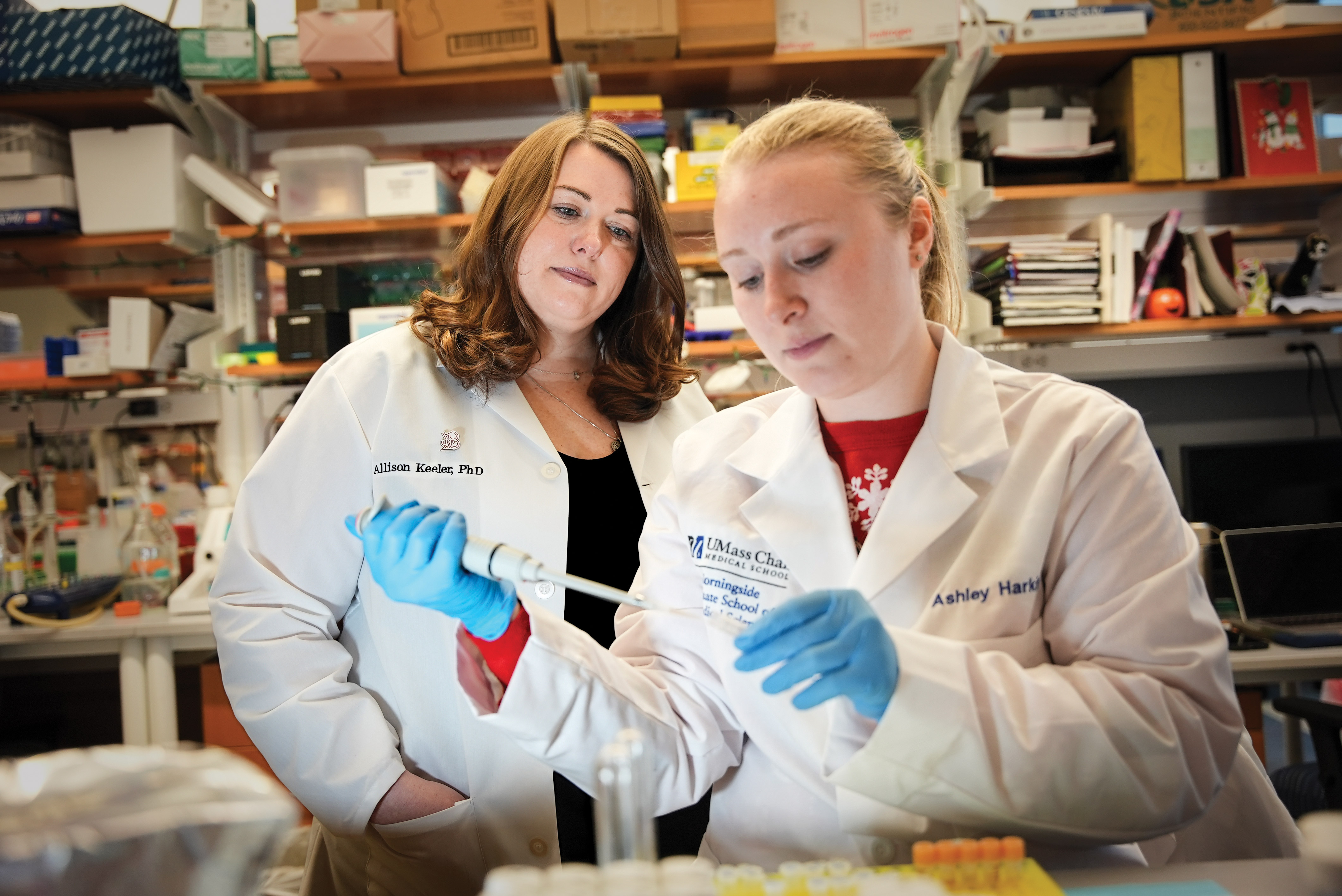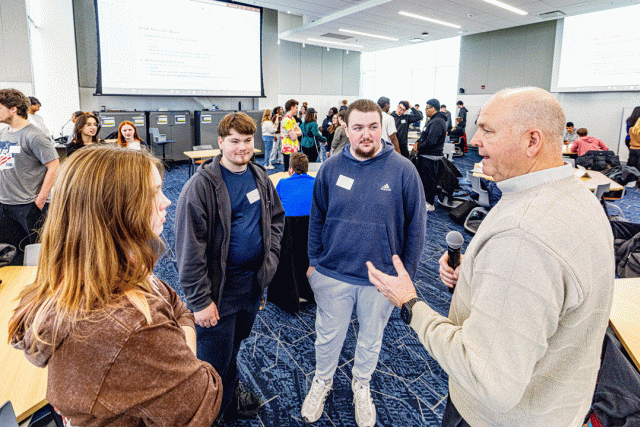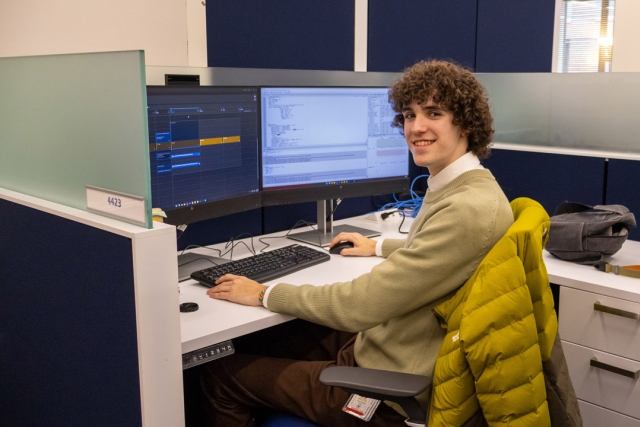Scientist’s RIT experience leads to career in revolutionary gene therapy research
Bryan Goodchild
Allison Keeler ’05 (biotechnology), left, has turned her lifelong interest in science into a career in medical research. She is the lead researcher in the Keeler Lab at the Horae Gene Therapy Center and assistant professor at the University of Massachusetts Chan Medical School.
From an early age, Allison Keeler ’05 (biotechnology) always knew she wanted to be a scientist. As an adult, that dream has come true as she is an assistant professor in the Department of Pediatrics at the University of Massachusetts (UMass) Chan Medical School and the lead researcher in the Keeler Lab within the Horae Gene Therapy Center.
Keeler applied early to RIT, out of her high school in eastern Pennsylvania. After visiting the campus and learning the university had one of the few biotechnology programs available, she knew getting hands-on experience in research at RIT was the best path for her future.
Keeler earned her bachelor’s degree in three years and was able to take advantage of a trip to the Galápagos Islands, where she realized she wanted to become an academic and a professor. After a research position at Duke University, she earned her Ph.D. in biomedical sciences from the UMass Medical School, where she now works. Mentoring and teaching in a lab environment has become her passion.
“Basics that I learned at RIT and each of my experiences have shaped where I am now and what I’m really passionate about,” said Keeler.
Her background has led her to one of the most revolutionary medical fields today: gene therapy. This technology approaches disease differently, by attempting to change genetic makeups to prevent and treat disease instead of traditional treatments like medication and surgery.
In her lab, Keeler is learning about and understanding immune responses to gene therapy and engineering and developing new novel gene therapies for the treatment of different diseases.
The field is progressing rapidly. When she was a graduate student, there were no approved therapies. Now, there are many, with more being approved every year.
“It’s been really interesting to watch the field evolve,” said Keeler. “It’s an exciting time in this field because several gene therapies have recently been approved.”
The scientific area is familiar to the dean of RIT’s College of Science, André Hudson, who is repeatedly sought out as an expert in biochemistry and microbiology. His research interests are closely related to Keeler’s, as both are excited about the future of science as it relates to the human body and disease.
“The work by Dr. Keeler and colleagues in this space is at the forefront of science and medicine,” said Hudson. “I am heartened that one of our College of Science alumni is helping to lead the charge.”
Keeler never envisioned she would be running her own gene therapy lab when she stepped on RIT’s campus as a biotechnology major. But as science grows and evolves, more and more possibilities for careers in science exist. She encourages students to keep their minds open and to explore all opportunities.
“I didn’t even know about gene therapy when I was at RIT,” said Keeler. “But science continues to expand. Keep being curious, keep asking questions.”



